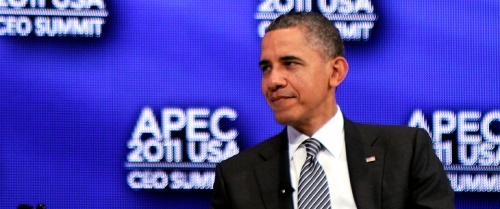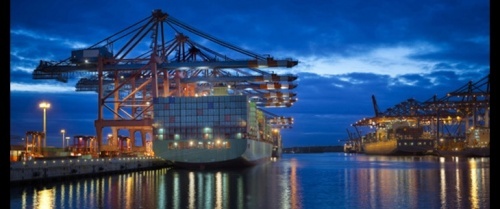


APEC started as diplomatic talk of economic cooperation and ended with blunt accusations of unfair currency and trade practices. Was it motivated by the coming US political campaign or the biting reality of China’s increasing domination of global trade? Probably a bit of both and some payback. More critically, is China an opportunity or threat on economic and political level?
The Boom Zone:
The potential for APEC Asia-Pacific Economic Cooperation summit would have appeared bright. The nations brought together include the most prolific Asian economic tigers to the globe’s biggest producers of resources that supply the boom. Some even spoke of APEC rivaling the European Union.
Competing & Cooperating:
That though is not realistic at least for now – APEC is a considerably more disparate group. Democratic values are not dominant in all member states. Human rights are spotty and economic methodologies and definition of free trade is not uniformly applied. Some of the members are more rivals than cooperating - and I’m not speaking of just the US and China – on issues of vital national interests. Vietnam, Philippines, Malaysia, Thailand, “Chinese-Taipei” and Brunei all have competing claims with the Republic of China over territories seas and particularly the resource rich Spratly Islands and surrounding seas. (Read:
diplomaticallyincorrect.org/films/blog_post/vietnam-china-position-for-a-faceoff-along-with-philippines-malaysia-brunei-and-taiwan-by-ambassador-mo/29292).
Disagreement-One Decibel Higher:
In this latest summit held in Hawaii, the China-US rivalry was ratcheted-up one more decibel. US has been for sometime critical of China’s mercantilist economic policies, (-more so recently than human rights and treatment of minorities and neighbors). China in turn has focused on what it projects as Washington’s hypocricy on human rights/foreign policy and what it sees as irresponsible fiscal and monetary policy. Holding trillions of dollars of US Dollar financial instruments, Beijing has taken liberty to lecture Washington as a banker might an irresponsible debtor, especially since it belives US monetary policy is intended to drive down the value of the US Dollar and thus China’s own holdings. China has not been particularly transparent on its mercantilist policy but has not looked to conceal or deny.
Playing by Rules:
President Obama emphasized that Americans were growing “impatient and frustrated” with China’s currency policy arguing that it is 20-25% undervalued by most peoples estimates. “What I have said since I first came into office and what we've exhibited in terms of our interactions with the Chinese is we want you to play by the rules. And currency is probably a good example,"
Beyond contending that China is artificially keeping its currency artificially low, Obama also focused on alleged theft/violations of intellectual property: "For an economy like the United States -- where our biggest competitive advantage is our knowledge, our innovation, our patents, our copyrights -- for us not to get the kind of protection we need in a large marketplace like China is not acceptable,"
Relationship Ever More Defined by Opportunity at Level of Business and Individuals Rather than Politics & Capitals:
Nonetheless, economic interdependence between China and the US are undeniable, from products and trade to investments and sovereign debt. At the APEC summit over 40% of US business leaders who attended see Asia as their biggest growth opportunity and particularly China. Direct investments are only a part of the opportunity. Much of it could come from a two-way exchange of physical and cultural products – For example Film Annex and Metan Development Group have entered into programming/content distribution arrangement for China. The objective is to share intellectual/content material rather than promote new trade walls. See
www.filmannex.com/posts/blog_show_post/film-annex-to-promote-and-distribute-content-produced-by-metan-development-group/41653
The bloom may be off the official political relationship between Washington and Beijing - even as the economic boom continues. The opportunity for profit and exchange may be increasingly seen in cooperation between ventures and people in both countries. The interaction is happening directly and through an array of channels.
The political cycle in Washington is on. China has its own election/selection of new Party leadership coming next year. We can expect the political language to become tougher as each position for domestic electorate. However, on the level of businesses and people, East/West – China/US are ever more interlinked, and many see it is a broader opportunity and beyond just profit potential
David Rohde’s less Optimistic Picture on China’s Political/Economic Development:
David and I have had opportunity to share time when he was journalist during the war in Bosnia & Herzegovina. Dave was held hostage by Serbian forces for investigated the Srebrenica killings/genocide. Securing David’s freedom became a priority during the Dayton talks, and thankfully David was soon thereafter freed.
David has just been visiting China. Writing on Reuters Blog, David’s impression of how the business boom is affecting the development of a more free and democratic society is more mixed, at best. Think that David’s perspective is worthy of closer review, although it may project a snapshot of now rather than projection of where the future streams. David’s most direct conclusion: “The suppression here is surgical. Most chillingly, the financial crisis and political sclerosis in Washington may have convinced China’s ruling elite that Western democracy has failed. A fractured west is in disarray and decline. China’s economic growth and three trillion in foreign currency reserves justifies one-party rule.”
blogs.reuters.com/david-rohde
It’s a picture that many agree with, and I have no more bright picture to speak of currently. Does the current trend though offer any more optimistic options? It’s something I will take up in a follow-up analysis/article. I think of myself as a realist. Optimism is part of that picture. The dynamics of business and culture frequently exceed our expectations based upon static pictures of today. Such can surprise Washington,Beijing as well as countless individuals and ventures that actually shape the flow.
By Ambassador Muhamed Sacirbey
Facebook – Become a Fan at “Diplomatically Incorrect”
Twitter – Follow us at DiplomaticallyX
"International Financial Crisis" Channel -
diplomaticallyincorrect.org/c/international-financial-crisis
APEC Members & Date of Entry:
Australia 6-7 Nov 1989 Brunei Darussalam 6-7 Nov 1989 Canada 6-7 Nov 1989 Chile 11-12 Nov 1994 People's Republic of China 12-14 Nov 1991 Hong Kong, China 12-14 Nov 1991 Indonesia 6-7 Nov 1989 Japan 6-7 Nov 1989 Republic of Korea 6-7 Nov 1989 Malaysia 6-7 Nov 1989 Mexico 17-19 Nov 1993 New Zealand 6-7 Nov 1989 Papua New Guinea 17-19 Nov 1993 Peru 14-15 Nov 1998 The Philippines 6-7 Nov 1989 Russia 14-15 Nov 1998 Singapore 6-7 Nov 1989 Chinese Taipei 12-14 Nov 1991 Thailand 6-7 Nov 1989 The United States 6-7 Nov 1989 Viet Nam 14-15 Nov 1998





